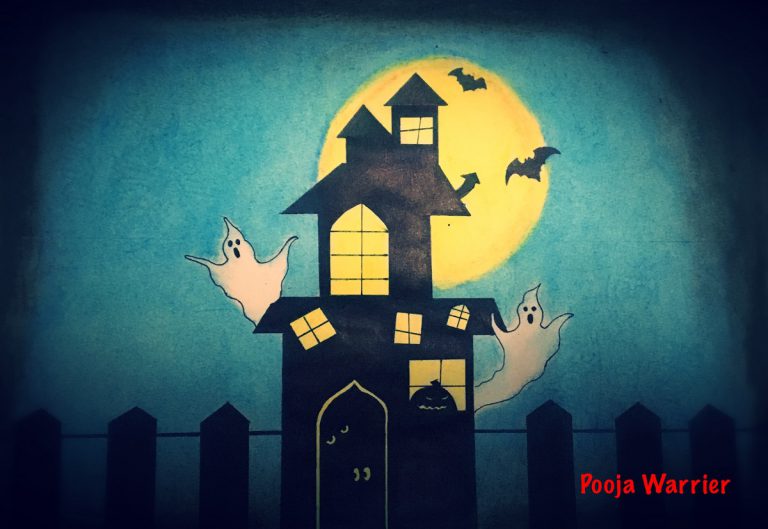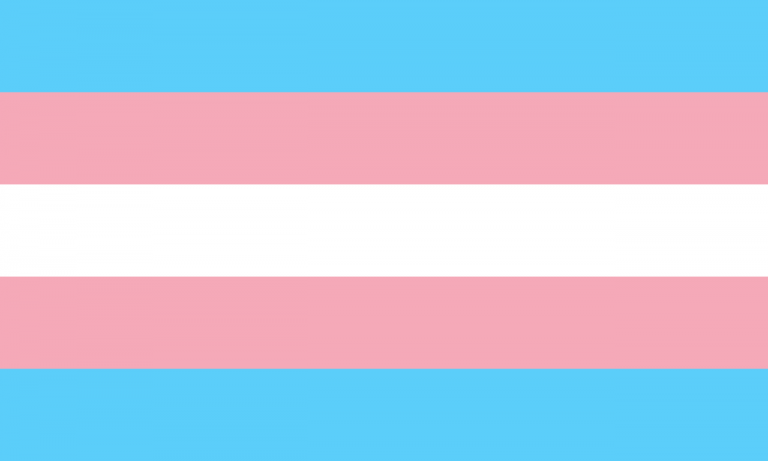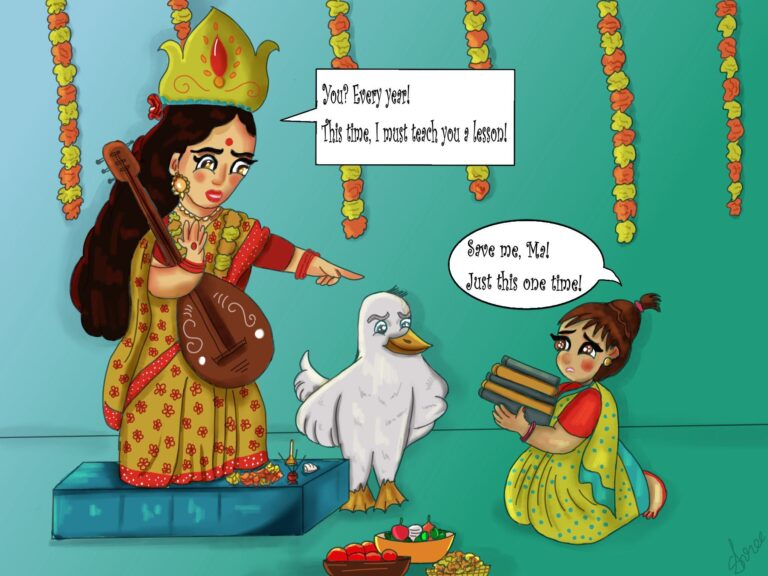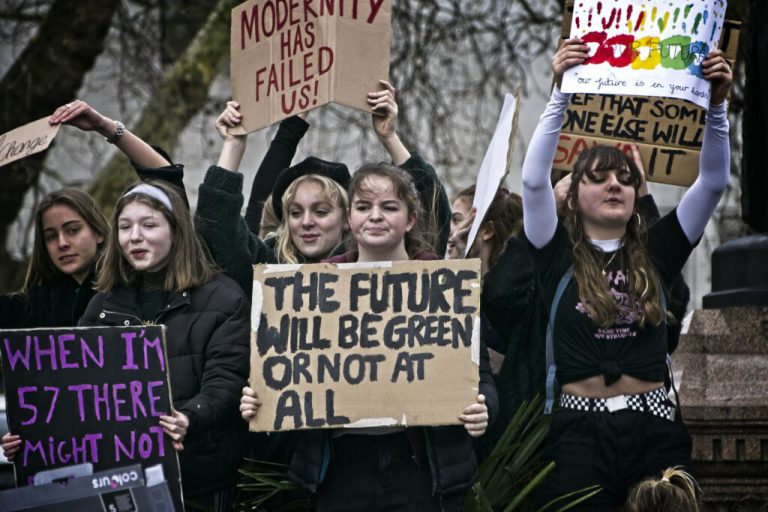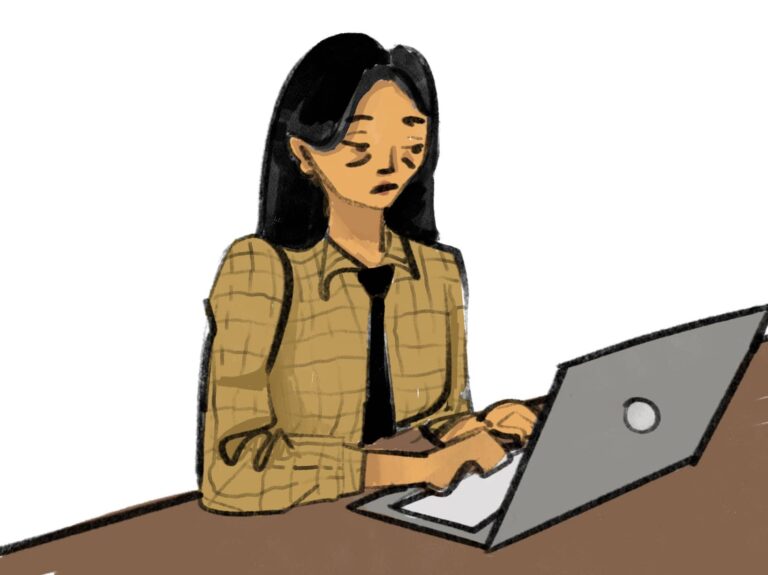Developing self-expression: Education programme
Dr Jyoti teaches at the Department of Elementary Education, Gargi College, Delhi University. As part of her pedagogy, Dr Jyoti encourages her students to publish articles in the journal.

Parul Dogra is a B.El.Ed. 4th-year student-teacher at the Department of Elementary Education, Gargi College, University of Delhi. She enjoys fiction, and silences and has a keen interest in absurdism philosophy.
Our higher education curriculum rarely pays attention to that which concerns students the most. It is life-affirming when formal education enables a young student to do that.
Education needs to be experienced as a personal journey rather than the pursuit of inert knowledge provided by a formal educational structure. Mine began as I started studying the various theory, practicum and other courses in an integrated four-year teacher education programme at an undergraduate college of the University of Delhi. The programme was nomenclatured a Bachelor’s of Elementary Education (henceforth B.El.Ed), The most fascinating aspect of this journey was how the nature of my self-expression evolved over four years; the modes of self-expression I gained and lost in/through B.El.Ed. course work. Conscious awareness of this evolution started in the second year when I started developing a perspective on the sub-disciplines of learning, language, communication and self-development through the theory courses on cognition, linguistics and human relations. The educational studies courses in the third year intensified a quest for aims and a wider purpose of education. This aim of exploring the nature of my own self-expression was in the back of my mind by then. After my third year, I was sure that I would write a book (for personal use) about my journey in the B.El.Ed. programme. In the fourth year, this idea came into focus when I had to decide on a topic for my undergraduate research project. I realised that I could begin work during my B.El.Ed. itself. I decided to look at my own journey in B.El.Ed. through the lens of the development of self-expression. Self-expression referred to my conditions of thinking, sharing and living; of revealing myself to the outside world as also knowing the self. It is what makes me different from every other student in my classroom. The project was my means of growth.
The research project concerns sharpened from the awareness that in order to be a part of B.El.Ed. the programme I needed to curb several aspects of my self-expression (preference to work independently and communicate through writing over oral presentations for example ) and experienced subtle coercion in order to be a part of a systemic structure. An introspective exploration of the effects of freedom and constraints upon a student’s self-expression within the B.El.Ed. structure, curriculum and processes were thus identified as my research lens.
As an undergraduate research endeavour, my goals were unconventional. The topics my classmates chose involved themes in educational philosophy, learning, curriculum and pedagogy; in school education. The research tools and techniques they planned to use were mentioned in books on research methods in education. The preferred methods, as per the trend of the times, for gathering data were virtual ethnography, google forms, telephonic interview schedules and google sheets. This facilitated data collection from a large number of respondents with alacrity. This made it possible for researchers to look methodologically sophisticated with a large sample size and use of text-bookish techniques.
In contrast, I was pursuing a unique genre of self-research in which the mirror of analysis had been turned inwards. There was no sample or sample size. The researcher was herself her sample. The data was going to be the self-expression evident in the writing of one student who was both the subject and object. The closest to what this is termed as a research tool was a narrative inquiry, but this was a narrative of my own.
There has not been much research related to self-expression by psychologists, linguists, cognitive scientists or educationists. Philosophical interest in self-expression in the latter part of the nineteenth century tended to be associated with controversial theories of knowledge, emotions and human psychology. Interest in the topic waned over a period of time (1). I sometimes found it perplexing why my research advisor never discouraged me from taking up this topic.
Not that I would be discouraged. Our education systems rarely pay attention to that which concerns students the most. The topic held deep personal meaning for me. In academic settings, students are typically engaged with expressing intellect and less concerned with emotions. There is a separation of the personal (affect) from the individual (cognitive) in life as a student. The pandemic blurred this, superficially with online classes from home because the two parts of our lives were physically in the same space. Yet the personal is repressed in name of academic work as if life had nothing to do with a ‘student’ life. But the student is an integrated being who is seeking to experience life as a whole. The philosopher Jiddu Krishnamurthi writes:
Though there is a higher and wider significance to life, of what value is our education if we never discover it? We may be highly educated, but if we are without deep integration of thought and feeling, our lives are incomplete, contradictory and torn with many fears; and as long as education does not cultivate an integrated outlook on life, it has very little significance (Emphasis original).
His words provided affirmative resonance to my choice of an unusual research topic. Of what use is the expression of my thoughts on textual themes of the B.El.Ed.curriculum if it does not turn into a means to discover the significance of my own life, my feelings and the total process of my being? He writes further:
In our present civilization, we have divided life into so many departments that education has very little meaning, except for learning a particular technique or profession. Instead of awakening the integrated intelligence of the individual, education is encouraging him to conform to a pattern and so is hindering his comprehension of himself as a total process(2).
I chose freewriting and guided writing as tools to examine the structural, curricular and other enablers, or disablers; of self-expression. This too was methodologically unconventional. Narrative inquiry genres of qualitative research do recognise such processes of data presentation and analysis but with much more formalisation. Freewriting involves just putting words to paper spontaneously without any base work at all. I wrote organically about several matters that I suddenly recalled from previous years. It was a compelling urge for self-expression that strikes me as a researcher. A moment when life is a cherry driving me to stop everything to put myself down on paper (or, on my phone). These narratives are not as structured as the ones I’ve written using ‘guided writing’, I didn’t have to remember anything as I wrote these narratives. I was thinking as I wrote and the process was almost self-actualising.
Select free-writing samples
This section reproduces four of my freewriting vignettes. The first one enabled recognition of the structural boundaries that were the systemic barriers to development of self-expression.
I’m no one to tell the world that your laws or rules don’t work. But I can surely say that these rules don’t work for me. For example not hurting people and not doing robberies works for me. But having to be someone like a doctor or a teacher; and being that for the rest of my life doesn’t work for me. Sticking to one job for the rest of my life doesn’t work for me. Having the skills for a job and not getting the job because I don’t have a degree doesn’t work for me. Writing and oral presentation being the only ways to express myself in an academic setting doesn’t work for me. Grades and deadlines don’t work for me. The pressure and anxiety because of grades, deadlines, oral presentations cripples me and I want to lie down and never get up again. I want to disappear forever and so it obviously doesn’t work for me.
With a complete switch to post Covid-19 online education I experience a technology induced disempowerment: missing the cathartic connect with paper.
In this pandemic situation, we’re so much dependent on technology, especially. I feel like I’ve become a slave to it. So, I choose paper. Because here I’m free. It’s just me, the paper and the pen. No message will distract me. I won’t depend on grammar and spell check but will correct my mistakes on my own. The best thing is that no one judges me, not an app and especially not a person. I don’t have to correct my mistakes. Why they are even considered mistakes? When a person is expressing herself, you don’t go about pointing out grammar mistakes.
On the evolution of this paper-pencil writing process as my preferred mode of expression,
No, I can’t choose paper, not always. I did write a few of my assignments and almost all the lesson plans & reflections on paper whenever I had the opportunity. After writing so many assignments where I never actually expressed who I am and after being forced by the pandemic situation, the system and the digital world to write assignments after assignments on Google Docs, I’ve lost the connection I felt when I wrote on paper. I’ve lost the flow and the satisfaction of writing for myself. Writing is not cathartic anymore. I wouldn’t know if it’s cathartic because I do not get the chance to write for the sole purpose of writing for myself and to understand myself through writing. I keep writing for assignments or grades but I don’t get the chance to write for myself. So now, I’m taking this chance to write for myself while still writing for project research. (It still isn’t as pleasurable as it used to be because I’ve to show it to others and because it’ll be graded). But it’s better than the content of those assignments which did not represent my real feelings and thoughts in the least.
The nature of my learning style also influences my self-expression. The programme’s transactional processes are not necessarily aligned with my preferences as a learner.
The more I worked in groups, the more I hated working in groups. I had these expectations of what group work is supposed to look like everyone should contribute to the ‘whole’ instead of just doing their part individually. If everyone’s just doing their part then that doesn’t feel like group work to me. One example of where exactly it happened is the group assignment on educational policy analysis where major national policy texts were summarised, analysed and presented by third-year students in groups. I really struggled with it and only developed a compartmentalized understanding of the policy. Not everybody has the same expectations, and that too is okay. I prefer doing my work independently and I ask for help when I need it. I think learning and working in a fast-paced environment where a lot of pressure is put on you because everything is on display for people to analyse (oral presentation being one example and online classes where you’re being observed by n number of eyes is another) and working in a group is not a part of my learning style and that was expected from me in B.El.Ed. and it makes me worry if this is what will be expected from me if I want to be a teacher. I work alone and I want to have the final decision on what I’m working on. But I do like suggestions from people so that I can see it from another point of view.
The 27,000-word research report that I authored at the end of the project is a piece of guided writing. My research guide provided prompts, scaffolds and supportive activities. In the process I moved within what Russian psychologist Lev Vygotsky terms the zone of proximal development (ZPD) (3). The process is called scaffolding. It is defined as the range of skills an individual can potentially perform with assistance but cannot do on his own yet. In guided writing, a teacher can help the student during three stages. First is the initial stage of prewriting planning where the teacher can advise in preparing the draft outline by modelling the process of planning, Second is the intermediate stage when the student has begun writing working drafts but teacher-guided scaffolds add matters of detail. Finally, in the last stage, the teacher can help the researcher grow within her ZPD with specific suggestions on written actions. In the present research, the role of guided writing was minimal. There was hardly any scope for my freewriting data samples to be ‘guided’ and the guided writing remained confined solely to my mentor’s reviews on structure, rules and other technicalities of academic writing.
My undergraduate research project was thus not merely an academic curricular task but an introspective four-year personal journey to express myself. I discovered that even in B.El.Ed. third year my written reflections were short, structured, academic and pedagogy based with no representation of myself. There was some representation of my thoughts as a teacher but not as a person. By my fourth year I shifted focus on my own experience first and then on the pedagogy-based concerns, challenges of online teaching and attendant issues. These curricular assignments represent me more than anything I’ve ever written before because I chose to share some part of myself without caring about whether I should express it or not. The project turned into a personal journey of self-knowledge based on the evolution of my written self-expression during the four years of my teacher education. The part when my formal education curriculum became an enabler was the most life-affirming.
References
- Green, Mitchell, (2007). Self-Expression. Great Britain: Clarendon Press, Oxford.
- J. Krishnamurti, (2014). Education and the Significance of Life. Chennai: KFI.
- Vygotsky, Lev, (1978). Mind in Society: The Development of Higher Psychological Processes. Cambridge, MA: Harvard University Press
Image Credit: Flickr




